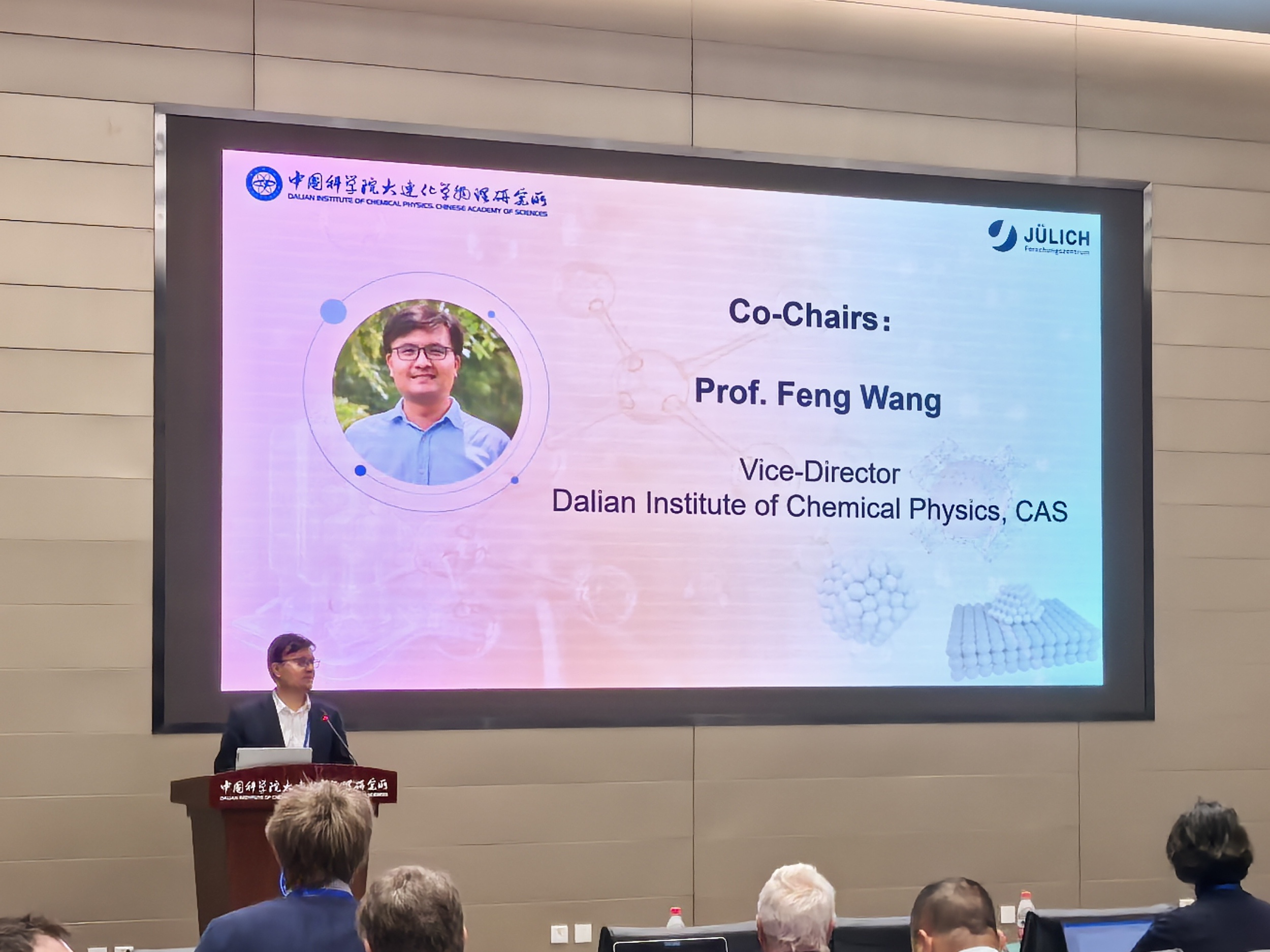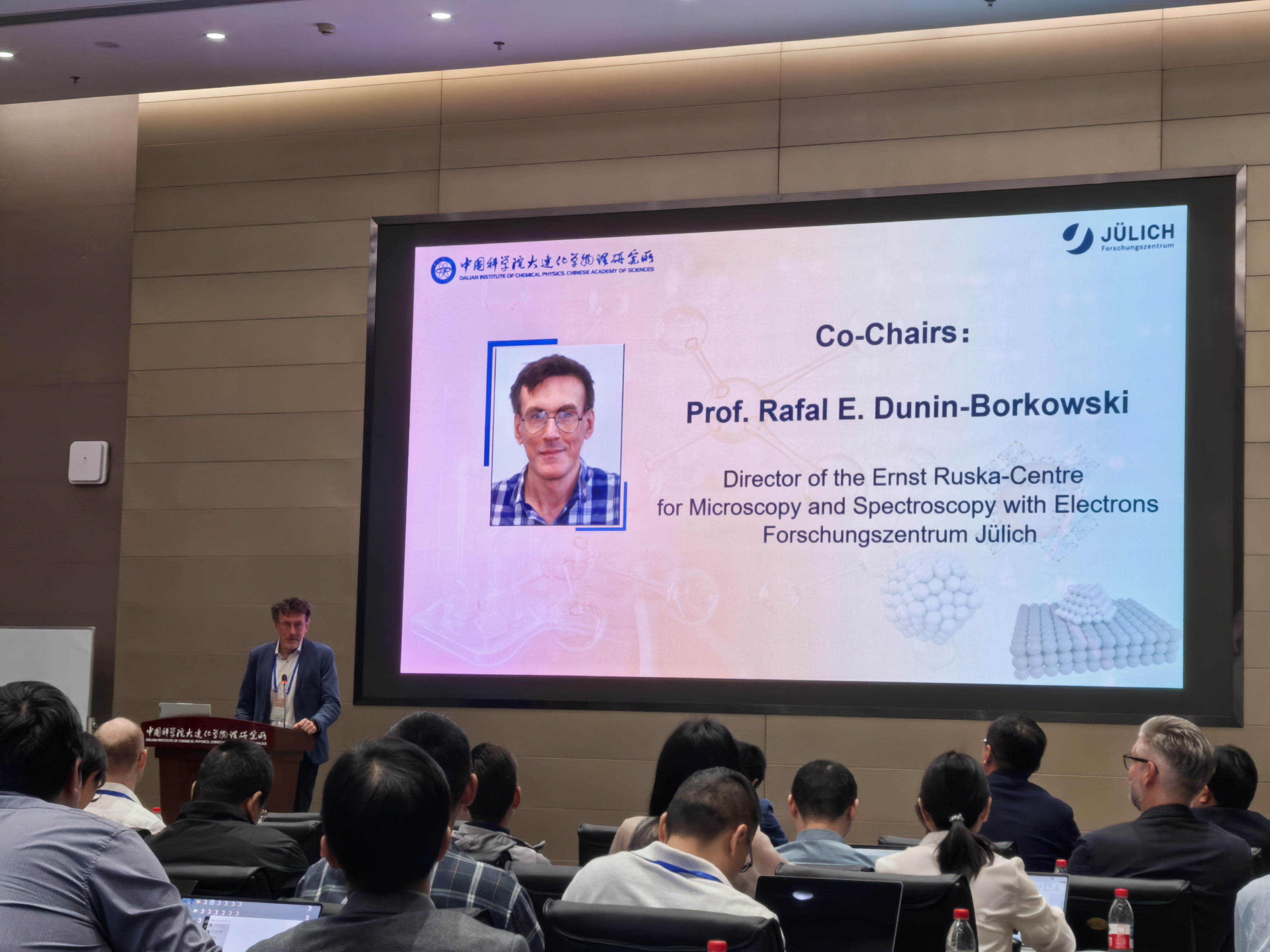From May 11th to 14th, the 57th DICP Symposium on ‘The 7th Joint Sino-German Symposium on Advanced and Correlative Electron Microscopy and Catalysis’ was held at the Energy College Campus. This conference was jointly organized by DICP and the Forschungszentrum Jülich, and was hosted by the Key Laboratory of Biomass Energy Conversion and Materials of Liaoning Province. Prof. Wang Feng and Prof. Rafal Dunin-Borkowski co-chaired the conference. Academician Zhang Tao attended the conference and delivered an invited speech. More than 30 experts and over 60 young scholars from the Forschungszentrum Jülich, Kiel University, Ruhr University Bochum, Technical University of Munich, Technische Universität Darmstadt, Nanyang Technological University in Singapore, Institute of Metal Research, CAS, Shanghai Institute of Microsystem and Information Technology, CAS, University of Chinese Academy of Sciences, Zhejiang University, Tsinghua University, ShanghaiTech University, South China University of Technology, Fuzhou University, and our institute participated in this symposium.
The conference, themed "In-situ Electron Microscopy Driving New Breakthroughs in Catalytic Science", saw in-depth and lively exchanges and discussions among experts and scholars on various aspects such as high time-space-resolution microscopy techniques, dynamic evolution of catalytic material structures under working conditions, single-atom catalysis, photoelectrocatalysis, and multimodal characterization methods. A consensus was reached that the deep integration of electron microscopy and catalytic science will drive breakthroughs in related fields such as energy science and materials chemistry. During the conference, participants also visited the Xishanhu Electron Microscopy Center and the Bioenergy.
This conference provided a platform for scholars from China, Germany and other countries in the field of electron microscopy-catalysis technology to exchange ideas. It is of great significance for promoting the development of electron microscopy technology in the direction of catalysis, expanding the influence of our institute in the research field related to electron microscopy, and strengthening the cooperation and exchange in the field of electron microscopy-catalysis at home and abroad.










